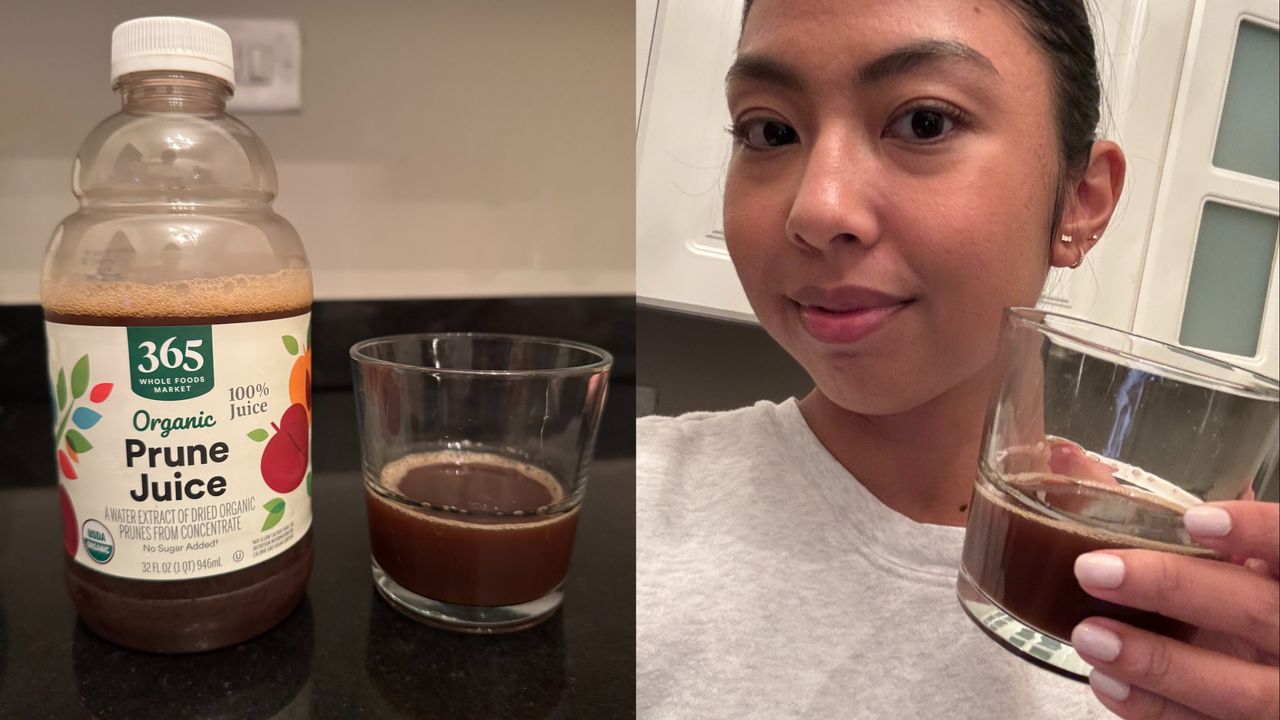Blog
I Drank Prune Juice Every Day for Two Weeks—and It Transformed My Digestion

As wellness trends continue to flood our social media feeds (protein, anyone?), fiber is the latest nutrition source the internet is obsessing over. The best method I’ve tried? Prune juice.
The truth is, digestion is an essential part of the wellness and health conversation. Sure, it’s not the most sexy topic, but here at Glamour, we’re all about making sure our digestive systems are in top shape. In the past few months we’ve tried dandelion tea and olive oil shots in pursuit of smoother bowel movements and healthier guts.
Following a recent trip to the gastroenterology clinic, I was advised by my doctor to increase my fiber intake. After recently testing fiber supplements with mixed results, I decided to try the old reliable of digestive aids.
According to Jack Braha, DO, a board-certified gastroenterologist with Allied Digestive Health, prune juice is commonly prescribed to patients for its laxative effects. But it also comes with a host of other health benefits. “In my clinical practice, prune juice is a preferred natural remedy for constipation,” Dr. Braha says. “It contains a range of electrolytes, vitamins, and minerals.”
It’s important to note that prune juice is not right for everyone and consuming too much can cause negative side effects. To help understand prune juice and its benefits, we asked Dr. Braha to explain.
What is prune juice?
“Dried plums, commonly known as prunes, can be turned into juice by cooking the fruit in hot water,” says Dr. Braha. This juice extract is basically liquid gold. “It contains a variety of health-promoting substances, including fiber, sorbitol, electrolytes, vitamins, and antioxidants,” he adds.
What is sorbitol?
One of the biggest benefits of prune juice is sorbitol, a carbohydrate effective in aiding constipation. “Sorbitol is a naturally occurring sugar alcohol that is sweet but lower in calories than conventional sugar,” says Dr. Braha. “It is commonly used as a low-calorie sweetener in products like candy and chewing gum. In prune juice, sorbitol acts as a natural laxative by drawing water into the intestines, softening stool, and stimulating bowel movements.”
What are the benefits of prune juice?
Aside from its laxative effects, prune juice has a variety of health benefits you’ll want to cash in on. “A single glass provides more than half the recommended daily intake of vitamin K, which plays a key role in bone health and blood clotting,” says Dr. Braha. “Prune juice is also rich in B vitamins, which support metabolism and neurological function, as well as important minerals like potassium, magnesium, and iron. Additionally, it contains polyphenols—a group of antioxidants known to reduce inflammation and assist in cellular repair.”
How much prune juice should you drink?
If prune juice is right for you, it’s crucial to only drink the recommended amount. “Excessive intake can lead to diarrhea, gas, or bloating,” Dr. Braha says. Trust me, I learned this the hard way. More on that later!
“For appropriate patients, I typically start with four ounces (half a glass) of prune juice every morning,” says Dr. Braha. “We can increase or decrease the amount as needed after a few days.”
Who should not drink prune juice?
“While prune juice offers numerous health benefits, certain individuals should exercise caution,” says Dr. Braha. This includes:












